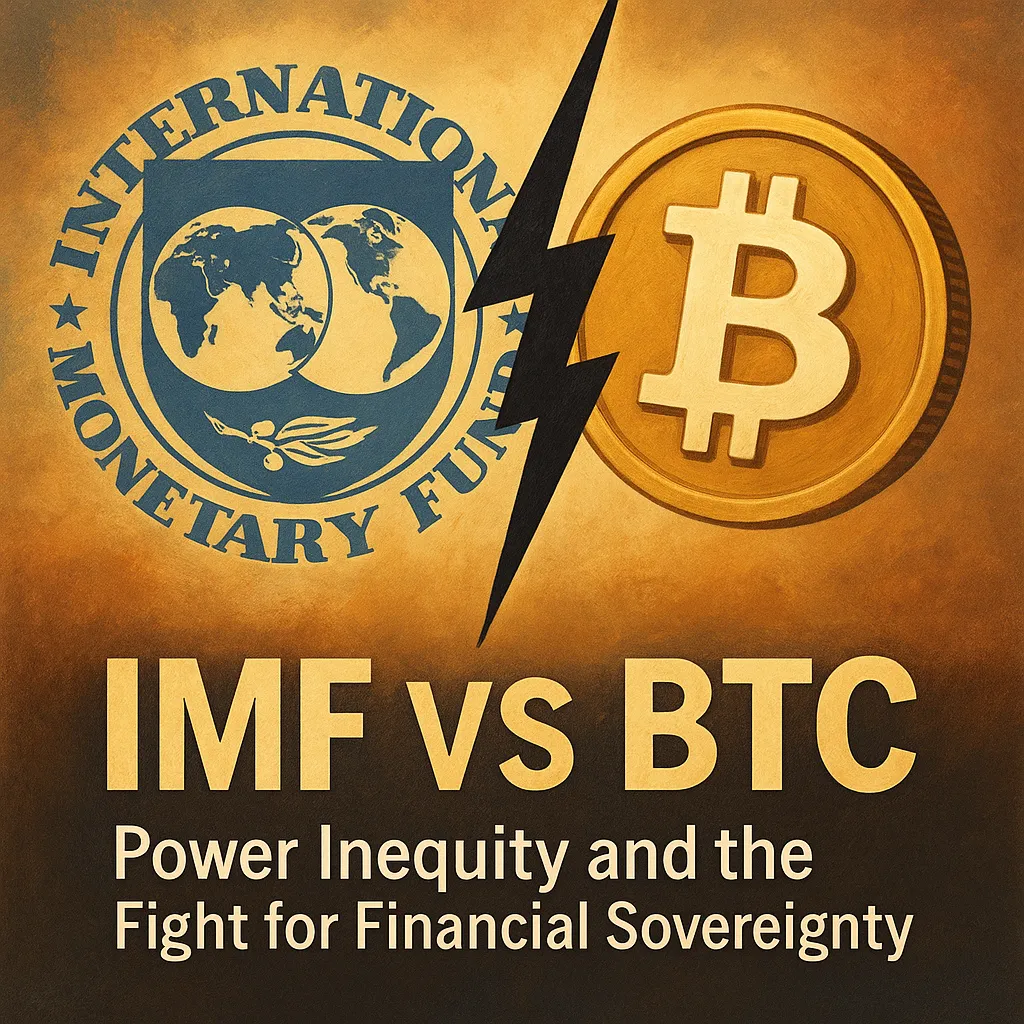
IMF vs. Bitcoin: Power, Inequity, and the Fight for Financial Sovereignty
For nearly eight decades, the International Monetary Fund (IMF) has positioned itself as the benevolent gatekeeper of global finance — rescuing distressed economies and guiding “development.” But in the shadows of these high-level loans and crisis talks, a very different story has played out: one of coerced austerity, debt traps, and centralized monetary control that has left much of the Global South poorer and less sovereign.
Enter Bitcoin.
Over the course of five parts, we’ve unpacked the historic and ongoing tension between these two forces: the legacy, debt-based monetary empire centered in Washington, D.C., and a decentralized alternative born from open-source code and backed by energy, math, and time.
This overview distills the key ideas from the full series and links you directly to each part so you can dive deeper.
🧱 Part I: Bretton Woods and the Birth of Monetary Hegemony
The first part of the series explores the IMF’s origins in the post–World War II Bretton Woods agreement — a system rigged from the start to entrench Western dominance. We break down how voting shares, access to credit, and structural conditions all favor the wealthiest nations, while developing countries are left with little voice and endless oversight.
TL;DR: The IMF was never designed to be fair — it was designed to stabilize a rigged game.
💸 Part II: The Faustian Bargain of IMF “Rescue” Packages
In Part II, we dissect the so-called “rescue” packages the IMF doles out — and the harsh strings attached. From structural adjustment programs (SAPs) to privatization and subsidy cuts, this section walks through how countries like Ghana and Haiti were pushed to open their economies at the expense of their people.
TL;DR: IMF help comes with hidden costs — like economic colonialism disguised as fiscal discipline.
🟠 Part III: Bitcoin’s Alternative Offer
Part III pivots to Bitcoin, showcasing how it offers something the IMF never could: true neutrality and self-sovereignty. With no gatekeepers, no interest payments, and no need to beg for capital, Bitcoin empowers both individuals and nations to exit the IMF’s treadmill of dependency.
TL;DR: Bitcoin is open to everyone. You don’t need to reform your economy to use it — just secure your keys.
🛡️ Part IV: Venice, Empire, and Decentralized Power
In Part IV, we look to history. The rise of Venice during the Renaissance proves that decentralized financial innovation can fuel flourishing societies. Like Venice’s early banking systems, Bitcoin separates money from politics — and that separation makes all the difference.
TL;DR: Civilizations thrive when money is built on trustless systems, not imperial whims.
🔚 Part V: A Future Without Permission
The final installment imagines a world where Bitcoin renders the IMF irrelevant. It’s already happening in Nigeria, Argentina, and El Salvador. Citizens are choosing financial freedom over forced dependency — and there’s no turning back.
TL;DR: Bitcoin doesn’t ask for permission. It wins by offering a better way — and people are noticing.
The Bottom Line
This is more than a debate about monetary policy. It’s about sovereignty, freedom, and the right to choose a financial system that doesn’t require obedience to a distant creditor class.
As the IMF continues to pitch debt relief dressed in fine print, Bitcoin offers something radical: an exit.
For those ready to take the leap, learn more, and start your journey toward financial independence, visit BullishBTC.com.



